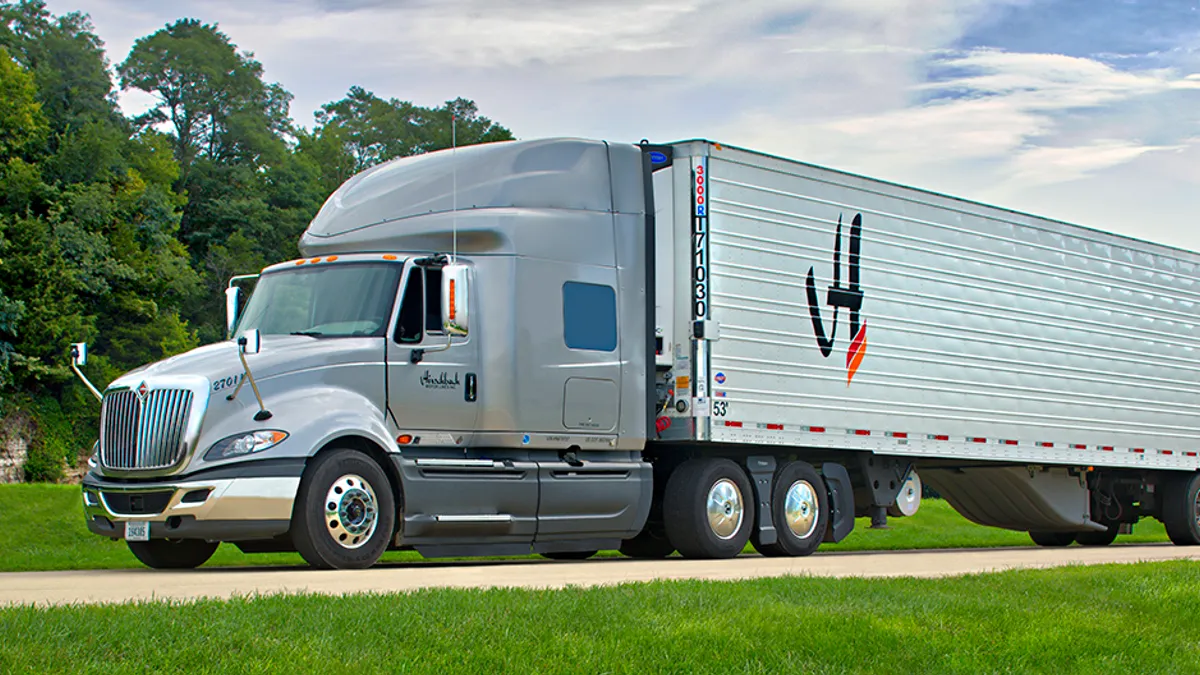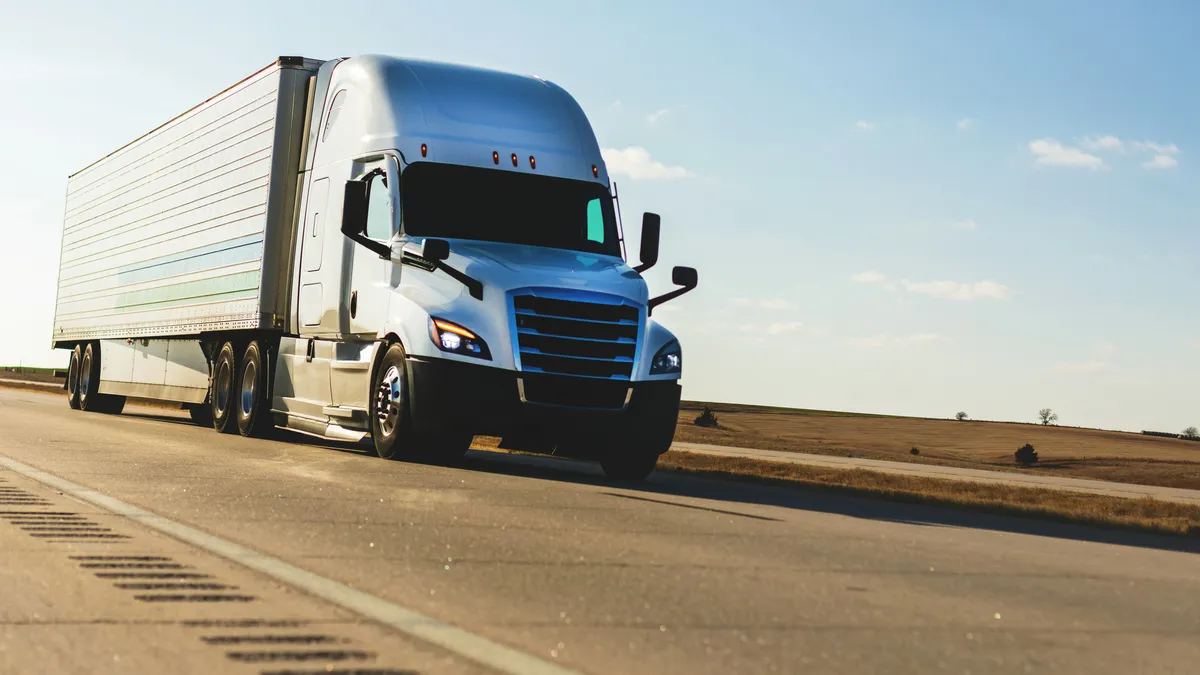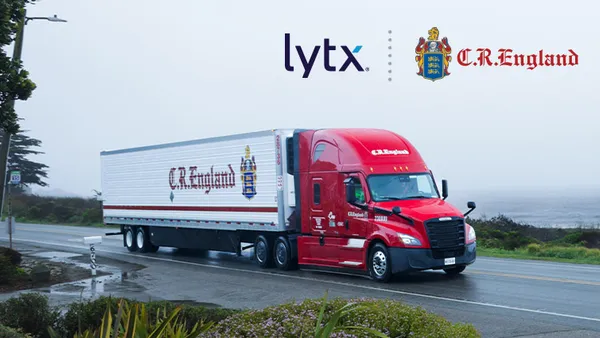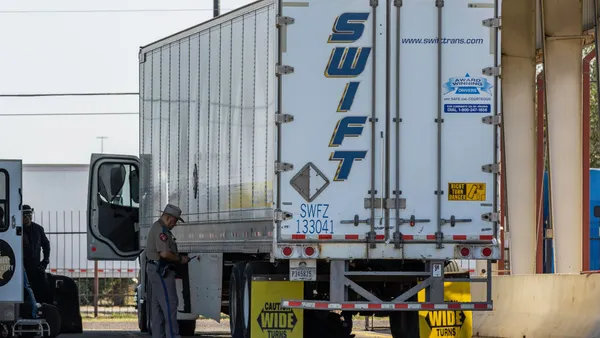Dive Brief:
- Hirschbach Motor Lines has gone completely digital in its hiring and training programs, the company told Transport Dive. It was in the process of switching to a digital process before the pandemic, but COVID-19 sped the process. Hirschbach completed the switch on April 1.
- The truckload company has 2,000 tractor-trailers, most of them reefer units. Based in the Midwest, Hirschbach employs 1,800 drivers. It employs Luma Brighter Learning for the training process.
- The Hirschbach announcement comes during a time of growing acceptance of tech for processes once thought to be too in need of human oversight. In April, U.S. Xpress told Transport Dive it had moved some of its training online.
Dive Insight:
COVID-19 caused a surge in distance-learning programs and the use of meeting software. For the trucking industry, the pandemic accelerated the use of such e-learning methods, but it was in use before the outbreak. Bianca Sanchez, Hirschbach marketing and social media manager, told Transport Dive on Friday that, although she didn't know for sure, the company might be the first fleet to totally go digital on hiring and training.
"I'd say were are at the top of the list to do it as quickly as we did," said Sanchez.
The switch is important during the rise of COVID-19, as it keeps recruits away from each other in potentially crowded classrooms. Another reason fleets feel the switch is important is the rise of mobile devices that drivers own. In a Feb. 24 post on his company's blog, Thom Schoenborn, vice president of marketing for Instructional Technologies, said more fleets are using mobile devices for training, making overall adoption of distance learning more feasible.
For Hirschbach, the switch to digital hiring and training is made easier by the fact that the fleet usually hires drivers with at least nine to 12 months of experience on the road, with a CDL ready to use, Sanchez said. There is no need for driving training. The Luma Brighter Learning software tracks and guides recruits from hiring through orientation to training.
Distance-learning or online-teaching companies, such as Instructional Technologies Inc. (ITI), were being used by a number of fleets for training before COVID-19. ITI offers drivers online training for heavy-duty trucks, with some courses for lighter trucks and final-mile vehicles.
Since the COVID-19 crisis began spreading in mid-February, fleets have been asking for a wider range of new services that cover orientation, onboarding and health-related matters, according to ITI. The main goal is to keep trainees away from groups and classrooms. But fleets also want trainees and drivers to be up-to-date on COVID-19.
Distance learning, distance training and digital instruction are not for everyone, Sanchez said. The company still allows recruits to request in-person class instruction.
Some reports indicate distance-learning is too difficult for students. Washington closed its schools for the year early, on Friday, because of the problems it faced, according to the Wall Street Journal.
Some districts are giving up on remote learning and ending the academic year early, after concluding that it was too cumbersome for teachers, students and parents. Georgia and Texas also ended their school years early because of the hurdles. One problem was the lack of consistency in internet connections, the Journal reported. But another problem was that many teachers were asked to switch modes, from classroom to digital meetings, in one week, with little training.












